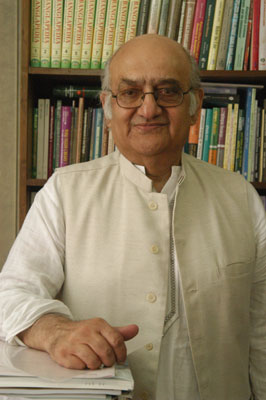
Europe in the Soup: Three Scenarios
In ‘Duck Soup‘ – the 1930s Marx brothers’ film – a powerful rich lady tells the ailing government of Freedonia, she will only bail them out with another loan, if her favourite – Groucho Marx – becomes president: chaos follows. Europe may or may not escape chaos as the euro crisis unfolds. But when asking what sort of European Union will emerge out of the Duck Soup of the crisis, there are no upbeat scenarios. Desperate Politics drives all scenarios The euro crisis has battered the EU’s political dynamics, clout and democratic credentials. The sight of technocrats running the Greek and Italian governments has been criticised as anti-democratic . But Europe’s political failings go beyond this. Neither Angela Merkel nor …
How the ICC can help Kenya
The ongoing International Criminal Court trial into the so-called “Ocampo Six” is a reminder of how raw the violence around the 2007 Kenyan election remains. It now seems likely that the verdicts on the six won’t be announced until next year – until which time Uhuru Kenyatta, one of those accused of inciting ethnic violence, remains in the post of Deputy Prime Minister. Over 1100 were killed, and had the coalition agreement not come when it did, the spectre of fully-blown Civil War was a genuine possibility. The international community was in shock, having traditionally viewed Kenya as one of the least violent countries in Africa. Really, they shouldn’t have been. A brief history lesson into how Daniel Arap Moi …

Challenging the Injustice of Poverty: a Conversation with Rehman Sobhan
Last week, Professor Rehman Sobhan, Chairman of the Center for Policy Dialogue in Dhaka, Bangladesh, visited the UN Development Programme in New York City to discuss his most recent book. I had the opportunity to speak with Professor Sobhan about the motivation behind his work and learn about the years of field research that preceded it. Challenging the Injustice of Poverty: Operationalizing an Agenda for Inclusive Development Across Southeast Asia is a culmination of Professor Sobhan’s efforts to understand the roots of economic exclusion across 5 countries over the past 4 years. At its core is Sobhan’s uncompromising insistence on identifying the source, as opposed to merely addressing the symptoms of poverty. According to Sobhan, poverty is not a social …
What does UN Security Council Resolution 1973 permit?
I spent much of yesterday conducting interviews with the media about the situation in Libya. One of the questions I was repeatedly asked concerned the scope of the UN Security Council Resolution 1973 which authorises the use of force in Libya. How far does the resolution permit the coalition now acting in Libya to go? What are the objectives of the coalition military action? Does it permit the targeting of Colonel Gaddafi? The objectives set out by the resolution seem to me to broader than what is commonly thought. Para. 4 which authorises the use of all necessary means (short of an occupation force) is not just about protecting civilians but also, importantly, about protecting civilian populated areas under threat of attack. In other words, that paragraph authorises the use of …
Is Operation Odyssey Dawn a ‘Just’ Intervention? Assessing the Relationship Between Cause and Conduct
As Operation Odyssey Dawn gets underway, political leaders within the coalition continue to articulate their reasons for resorting to force. In so doing, each has invariably invoked the language of the just war tradition. On the eve of military action, President Obama proclaimed, ‘Our goal is focused, our cause is just, and our coalition is strong. ’ Similarly, in his remarks to the Commons on 20 March 2011, Prime Minister David Cameron argued that coalition forces had a ‘just cause’ to use force. When it comes to assessing prospective causes for resorting to arms, few could be more compelling than the protection of populations under threat of mass slaughter. It was on the basis of this pressing need to protect that …
UN Secretary-General HE Mr Ban Ki-moon at Oxford University
His Excellency Mr Ban Ki-moon, current Secretary-General of the United Nations, gave this year’s Cyril Foster Lecture on ‘Human Protection and the 21st Century United Nations’ on 2 February at Oxford’s Examination Schools, hosted by the Department of Politics and International Relations. HE Mr Ban Ki-moon was the 4th Secretary-General of the UN to give a Cyril Foster lecture and he was greeted by an audience of over 700 attendees, including the overflow rooms. From the very early days of his tenure as Secretary General, Ban Ki-moon has placed humanitarian issues, and particularly the notion of the ‘responsibility to protect’, at the forefront of his agenda. More specifically, he has sought to turn ‘words into deeds’ – to translate the …
Media interest in climate change takes a dive
A year can be a very long time in the life of media interest. In December 2009, I was one of more than 4,000 journalists who attended the UN’s Copenhagen summit on climate change – probably the largest press presence for an international event outside of sport. The journalists came from 119 countries, and suffered the freezing temperatures and disappointing results. It wasn’t just the Western press who were there. Emerging powers like Brazil and China both had more than 100 journalists. (see the RISJ report at http://reutersinstitute.politics.ox.ac.uk/publications/risj-challenges/summoned-by-science.html) One year on, and the next major summit at the Mexican resort of Cancun was much less of an attraction – despite the beaches, tequila and abundance of sun. This time, around …









